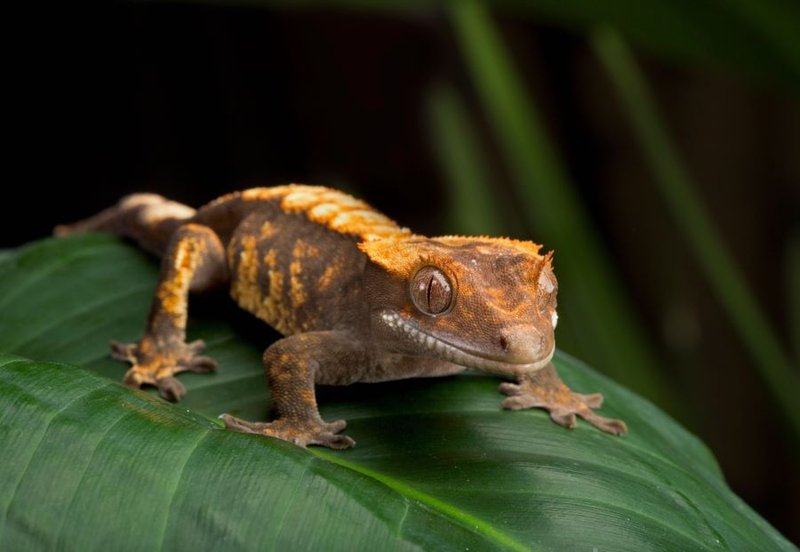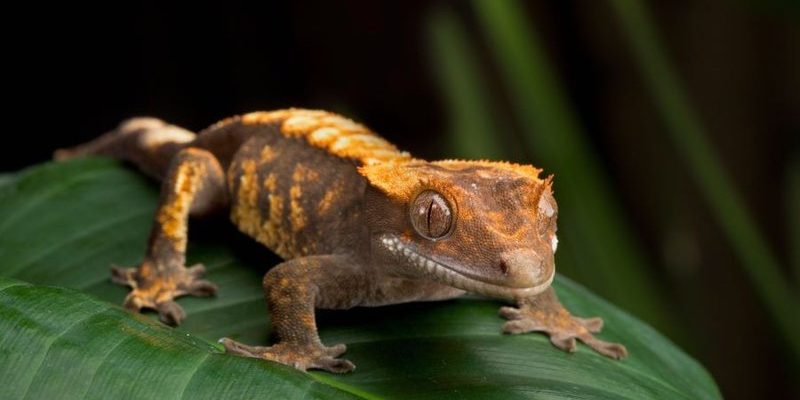
So, let’s dive into whether these geckos can pose any danger to humans. We’ll explore their behavior, any potential health risks, and how to care for them safely. Don’t worry; I’ll keep it simple and friendly. By the end, you’ll have a clearer picture of how to enjoy your time with a crested gecko without fretting about safety.
Understanding Crested Gecko Behavior
Crested geckos are generally known for their docile and friendly nature. They tend to be more curious than aggressive. In fact, if you were to hold one, you might feel it lightly exploring your hand with its tiny feet. Isn’t that charming? Compared to some reptiles, which can get defensive, these geckos are more likely to retreat or freeze when they feel threatened.
However, it’s essential to recognize their body language. If a crested gecko feels stressed, it may hiss or even whip its tail. This behavior is more about their flight instinct than aggression. So, if you notice your pet acting skittish, it’s best to give it some space. Understanding their behavior helps build trust, making handling a lot more enjoyable for both of you.
Are Crested Geckos Venomous or Poisonous?
You might be wondering if crested geckos are venomous or poisonous. The good news is that these little critters are neither. They don’t have venom sacks like some snakes or poison spines like certain fish. They’re harmless to humans and pets alike. If you were to accidentally get bitten while handling one—perhaps during a moment of surprise—that bite is akin to a little pinch. It’s not going to cause harm, just a minor shock.
Still, it’s good to practice caution. Make sure your gecko feels secure in your hand, so it doesn’t feel like it has to defend itself. That way, you can both enjoy your time together without the risk of a scare.
Health Risks and Safety Precautions
While crested geckos are generally safe, there are some health risks to consider. One major concern is salmonella. Reptiles can carry this bacteria without showing any signs of illness. If you’re not careful, you could accidentally transfer it to yourself. But don’t fret! You just need to take a few simple precautions.
Here are some tips to keep in mind:
- Wash Your Hands: Always wash your hands after handling your gecko, its cage, or any of its equipment.
- Keep Their Environment Clean: Regularly clean and disinfect their habitat to minimize the presence of harmful bacteria.
- Avoid Eating Around Them: It’s best not to eat or drink near your gecko to prevent accidental contamination.
Following these guidelines will help keep you safe and healthy while enjoying your pet.
Handling Your Crested Gecko Safely
Handling crested geckos can be a delightful experience. They usually tolerate it well, but it’s essential to do it correctly. Start by letting your pet get used to your presence. Spend time near their enclosure, allowing them to observe you. When you feel it’s time to pick them up, do it gently.
Here’s how to safely handle a crested gecko:
1. Approach Calmly: Move slowly so you don’t startle your pet.
2. Use Two Hands: Support their body with both hands to prevent them from feeling insecure.
3. Let Them Explore: Allow them to crawl on your hands, but keep a firm grip to avoid any falls.
Honestly, allowing them to explore a safe, enclosed area while supervised can be a fun way for them to stretch their legs and feel less restricted.
What to Do If Bitten
If you do happen to get bitten, first, don’t panic. A bite from a crested gecko isn’t harmful, akin to getting a small pinch. Here’s a quick guide on what to do:
1. Assess the Bite: Check to see if there’s any bleeding or if it’s just a small mark.
2. Clean the Area: Wash the bite with soap and water to prevent any potential infection.
3. Apply a Bandage: If it’s bleeding, apply a clean bandage to keep it covered.
Although rare, it’s good to be prepared. Remember, a little patience and understanding can go a long way in your relationship with your pet.
Creating a Safe Environment
Part of ensuring that your crested gecko is safe and happy is providing them with a suitable environment. A well-maintained habitat can minimize stress and potential health issues. Here’s what to think about:
– Size Matters: Ensure the enclosure is spacious enough—generally at least 20 gallons for one gecko.
– Temperature Control: Maintain an appropriate temperature gradient within the habitat. Crested geckos thrive in a range of 72°F to 80°F.
– Humidity Levels: Use a hygrometer to monitor humidity, keeping it between 50% and 70%.
Being mindful of these factors not only keeps your gecko happy but also reduces any chance of health problems that could indirectly affect your health.
Common Misunderstandings About Crested Geckos
Many people mistakenly believe that all reptiles are dangerous or carry diseases. This isn’t true for crested geckos. Understanding their nature helps dispel these myths. Here’s where some common misconceptions lie:
– Crested Geckos Are Aggressive: As mentioned before, they typically flee rather than fight. If cared for properly, they can be incredibly gentle.
– They Can Cause Allergies: Unlike cats or dogs, reptiles don’t produce dander or allergens. Most people can safely interact with them without fear of allergic reactions.
– Only Experts Can Handle Them: This is false. With the right knowledge and gentle handling techniques, anyone can enjoy the company of a crested gecko.
Let’s break the stigma around these fascinating creatures.
In conclusion, crested geckos are generally safe and enjoyable pets. They don’t pose a danger to humans, making them a great choice for reptile lovers or anyone curious about these unique little lizards. By understanding their behavior, taking a few safety precautions, and creating a comfortable habitat, you can ensure a happy, healthy home for your crested gecko. So, go ahead and enjoy those little moments of joy and curiosity—they’re worth it!

